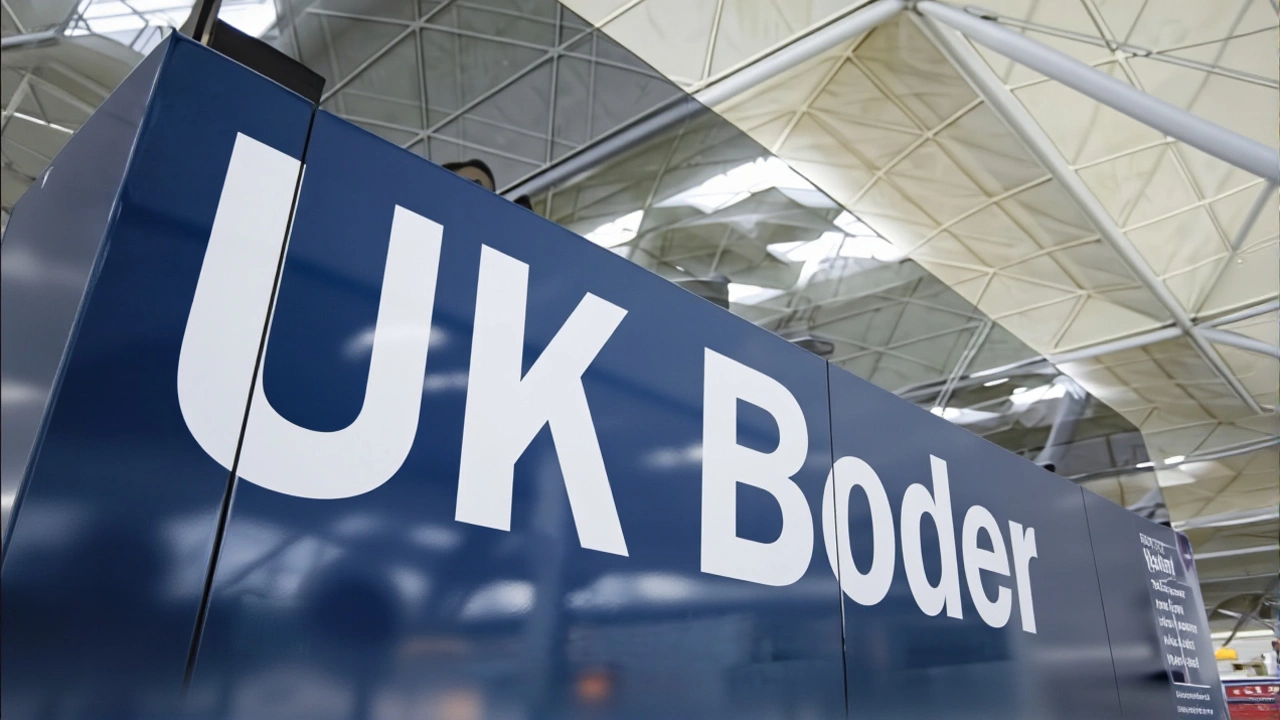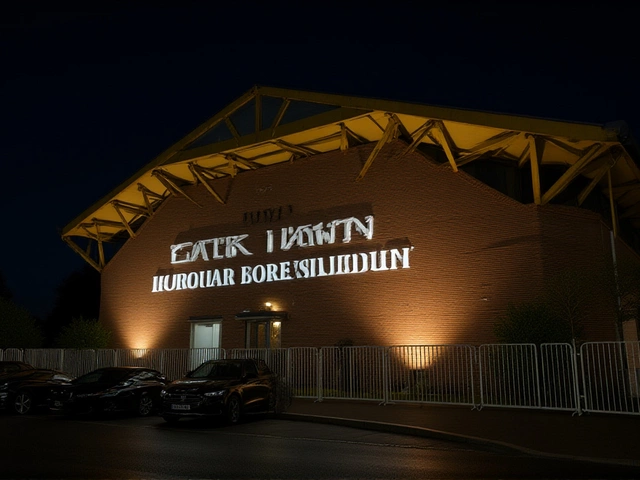When Home Office unveiled the Statement of Changes to the Immigration Rules (HC 1333)United Kingdom on 14 October 2025, the headline grabber was an instant‑effect visa rule for Botswana nationals. The move, announced by Mike Tapp, Minister for Migration and Citizenship and Dr Sam Worby, Head of Simplification and Systems Unit, throws a curveball at a rule‑making convention that normally gives a 21‑day buffer after Parliament is notified.
Immediate visa requirement for Botswana nationals
Effective at 15:00 BST on the day the changes were published, every traveller from Botswana must hold a valid UK visa before boarding a flight. The Home Office justified the rush by warning of a “substantial increase” in visitors who, once in the UK, filed asylum claims – a pattern it describes as “misuse of the UK’s immigration system.”
The department also built in a six‑week transition window. Anyone who had already booked travel before the announcement can still travel without a visa, provided the journey was booked prior to 14 October. The safeguard aims to prevent financial loss for holidaymakers and avoid a sudden surge of last‑minute applications that could overwhelm caseworkers.
For technical drafting queries, the memorandum points reporters to Robert Hayes‑Walters at the dedicated parliamentary mailbox [email protected]. The email is for “parliamentary use only,” underscoring how politically sensitive the change is.
Palestine joins the visa‑national list, plus other November tweaks
Following the usual 21‑day lag, the rule that adds Palestine to the visa‑national list takes effect on 11 November 2025. From that date, Palestinians must apply for a visa before attempting to enter the UK, aligning their status with the new Botswana requirement.
November also sees a trio of student‑friendly adjustments. German students under 19 can travel as part of a school party of five or more without needing an Electronic Travel Authorisation (ETA) or visa. Meanwhile, EU, EEA and Swiss nationals aged 19 or younger studying at UK schools may use a national identity card instead of a passport – a nod to the easing of post‑Brexit travel friction.
New English‑language bar and reinforced Global Talent route
Another headline change raises the language bar: all migrants must now demonstrate an English proficiency equivalent to an A‑Level. The Home Office says this will help “double the number of highly skilled people” arriving on routes such as the Global Talent visa, which already targets top researchers, designers and creatives in film and TV.
From 11 November the Global Talent route expands its list of recognised prestigious prizes and tightens evidential requirements for architects. The rulebook also swaps the phrase “General Grounds for Refusal” with “Part Suitability” in paragraph 281(vii), a subtle but legally important shift.
Reactions from stakeholders
Immigration lawyers and NGOs have mixed feelings. Sarah Patel, senior counsel at a London immigration firm, called the Botswana decision “a blunt instrument” that could strain diplomatic ties with Gaborone, especially given the six‑week grace period is “still a tight squeeze for families who booked holidays months in advance.”
Conversely, the Refugee Council welcomed the move, arguing that tighter visitor‑visa controls will reduce “asylum tourism” and free up resources for genuine refugees. The council also praised the new A‑Level English rule as a step toward higher integration standards.
Industry bodies representing universities, such as Universities UK, welcomed the student‑travel easements, noting they will make short‑term study trips less bureaucratic and could boost enrollment from the EU and Switzerland.

Impact and what’s next
Analysts predict a short‑term dip in the number of Botswana nationals arriving on visitor visas, but the longer‑term effect remains uncertain. The Home Office suggests the transition period will “smooth the operational impact,” yet critics warn that a sudden surge of visa applications could test the already‑stretched case‑handling system.
The broader reform agenda – dubbed the “Plan for Change to reform our immigration system” – is set to roll out additional asylum and border‑security measures later in autumn 2025. A further tweak to the Global Talent route is slated for 2026, which will allow top‑ranking entrepreneurs to move from a student visa to the Innovator Founder stream without a hiatus.
Key facts
- Immediate visa requirement for Botswana nationals starts 14 Oct 2025, 15:00 BST.
- Six‑week transition period protects travelers who booked before the change.
- Palestine added to visa‑national list effective 11 Nov 2025.
- German students < 19 can travel in groups of five without ETA or visa.
- New A‑Level English standard applies to all migrants from 11 Nov 2025.
Frequently Asked Questions
Why did the Home Office accelerate the Botswana visa rule?
Officials said early notification would likely trigger a surge of Botswana visitors seeking to enter the UK before a visa was required, which could overwhelm border officials and increase unfounded asylum claims. The six‑week grace period aims to balance fairness to travelers with system capacity.
What does the new A‑Level English requirement mean for prospective migrants?
Applicants must now provide evidence – such as an IELTS score of 7.0 or an equivalent qualification – that matches the rigor of a UK A‑Level English exam. The change is intended to ensure newcomers can integrate more quickly into work and study environments.
How will the November student‑travel changes affect EU and Swiss nationals?
Students aged 19 or younger from the EU, EEA or Switzerland can now cross the UK border with just a national identity card, eliminating the need for a passport. This streamlines short‑term study trips and could make the UK a more attractive destination for younger scholars.
What are the expected impacts of the expanded Global Talent route?
By widening the list of recognised awards and tightening the evidence standards for architects, the Home Office hopes to attract more world‑leading innovators. The goal is to double the intake of highly skilled migrants, which should feed growth sectors such as film, TV, and high‑tech design.
Will the new visa rules affect other countries besides Botswana and Palestine?
The current Statement of Changes lists no further immediate visa‑national additions. However, the Home Office signalled that future immigration reforms – particularly around asylum and border security – are on the agenda for later in 2025 and 2026.






